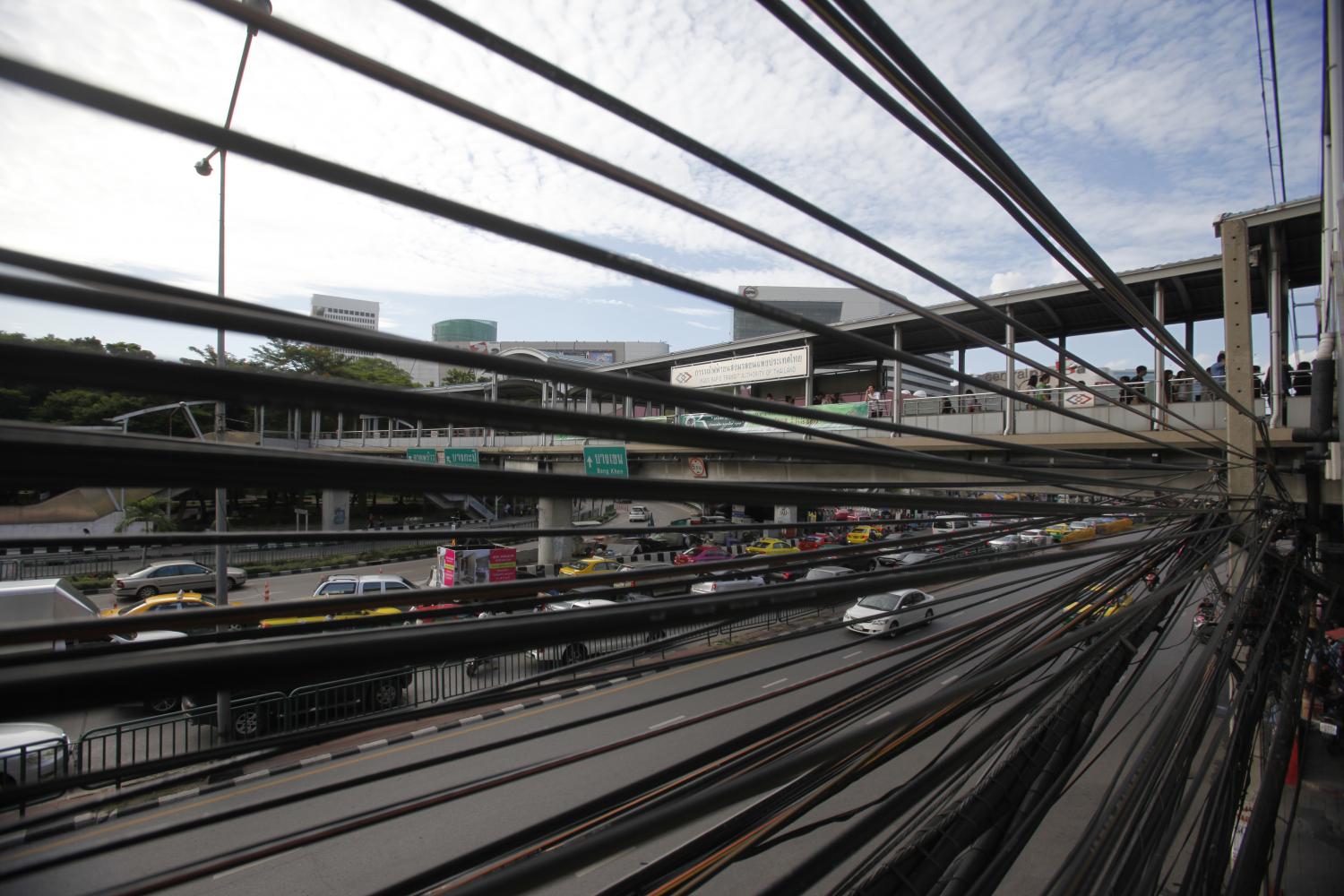
Bangkok underground cable conduits owned by National Telecom (NT) are slated to be leveraged to support government efforts to move telecom cables underground and beautify the capital's landscape.
The resolution was recently agreed on by the Bangkok Metropolitan Administration (BMA), the National Broadcasting and Telecommunications Commission (NBTC) and NT.
The first task is to move telecom cables through NT's underground conduits on Yaowarat Road, starting in February.
The BMA, which has the authority for all of Bangkok's sidewalks, agreed to allow NT to install risers used to connect the underground conduits with buildings, as well as fibre-optic patch panels.
The resolution requires telecom and broadcast operators to move their cables underground and pay NT a rental fee.
Sutisak Tantayotin, deputy secretary-general of the NBTC, said NT has the potential to facilitate the task because it has underground conduits spanning more than 3,000 kilometres in Bangkok.
It could offer inexpensive fees for conduit rental to telecom operators, said Mr Sutisak.
The use of NT's conduits would expedite bringing overhead cables underground and reduce the subsidy for construction costs of new conduits shouldered by the NBTC, he said.
"The three organisations will hold another meeting this month before moving ahead with the plan, starting with Yaowarat Road through to Sampheng junction," said Mr Sutisak.
NT president Col Sanphachai Huvanandana said the company has the potential to provide underground conduits and serve as a neutral last-mile provider, supporting internet connections to households.
Under the concept of a neutral last-mile provider, all telecom firms have to agree to appoint one company to serve as a single last-mile provider responsible for enabling fibre connections to households.
The telecom firms pay the sole last-mile provider a rental fee.
As telecom operators have cable lines as their own assets that are already connected with households, they may have to trade these cables in exchange for some of the rental fees they are required to pay in the future.
"The neutral last-mile business has potential, but it is not easy to implement quickly as major operators need to participate in establishing the neutral company," said Col Sanphachai.
According to Mr Sutisak, the regulator is considering holding talks with major telecom operators and smaller firms to establish a clearinghouse responsible for the development of the conduits and last-mile connections.
The clearinghouse firm will have to be jointly established by all related firms, he said.
Mr Sutisak admitted it is difficult to seek collaboration from all related firms to convert all of their assets involving conduits and last-mile connections into shareholding in a clearinghouse.
Last year, NT said the rental fee for its conduits was less than 4,000 baht per km per subduct a month. One conduit has three subducts inside.
NT uploaded a map of locations of its existing conduits spanning 3,000km on its website.